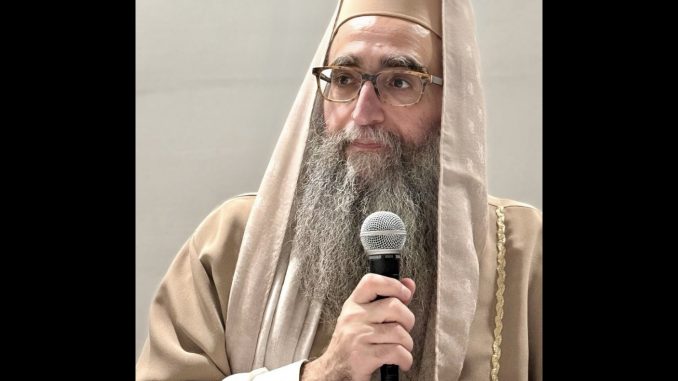
The lessons of the Rebbe, Rabbi Josiah Pinto, Shlita, are renowned in the Jewish world. They combine Hasidism and thought, along with tips for a better life. We have gathered pearls from his teachings that are relevant to our daily lives. And this week: Parashat Tatzvah
And you will command the children of Israel and they will take to you virgin olive oil for lighting a candle forever (27:20).
Moses Rabbeinu Raya of Himna The foundation of the holy Torah is mentioned in every portion – from the day he was born, except for one. This is our parsha, a Torah portion in which the name of Moses is not mentioned. Why?
The Sages say in Tractate Berakhot (32:1) that while the Israelites sinned in the sin of the calf, G-d wanted to annihilate the people of Israel, after taking an inanimate and empty thing, pointing and saying, “This is the God of Israel who ascended from the land of Egypt” (Exodus 32:4). G-d wanted to lose the entire nation of Israel, and Moses stood in prayer and plea to G-d to forgive the people of Israel, saying, “If there is none, Please pardon your book which you have written” (Exodus 32:32). If you do not forgive them, erase me from the holy Torah so that my name will not be remembered in the Torah. And the sages say (Makot 11:1) that “the curse of the sage even conditionally comes” – even though he did not exactly mean the curse or did not want it to be, in the end it exists. Moses spoke his words from the depths of Daliba, and they fell ill. And for this there is one portion of the Torah from which Moshe Rabbeinu was erased.It is also said of Moses, “
And the children of Israel saw the face of Moses, because the skin of Moses’ face beamed, and Moses restored the mask to his face” (Exodus 34:33) – Moses’ face produced such a special light that whoever looked at Moses could be blinded by the light on his holy face.
It is stated in the Midrash that while Moses was writing the Torah, he refrained from writing great things about himself, the verse “And the Lord called out to Moses, and the Lord spoke to him from the tent of Moed to say” (Leviticus 1:1) he wrote the word “Leviticus” with a small A. And then there is this week’s Torah portion, in which Moses is not mentioned, and so in the helmet where the holy ink Moses used to write the Torah scroll remained, a few extra drops.
And when Moses finished writing the Torah, asked G-d what he would do with this ink, G-d replied that this ink was his. Moses took the ink and poured it over his face and from there beamed the skin of his face until whoever looked at Moshe’s face could go blind, and Moshe Rabbeinu had to put on a disguise.
This ink from which the skin of Moses’ face beamed remains from Moses’ humility, righteousness and love for the Jewish people, and as we see in this week’s Torah portion, in which his name is not mentioned, after he told G-d that if he did evil to the people of Israel, “please pardon your book which you have written.”
We must learn from Moshe Rabbeinu a great foundation of taking responsibility. Many people face all kinds of situations in life, but it’s hard for them to take responsibility. There are many difficulties and problems in the world because most of the world does not take responsibility for themselves. They see something fall or deteriorate, they see spoilage and destruction, and instead of dealing with it, they run away and don’t want to take part in something bad. They see a problem and assume it – do not want to take the problem on themselves, Then the problems continue and deteriorate and there will be the greatest devastation.
A person who runs away from taking responsibility for himself brings unparalleled destruction. A man encounters various problems at home, and he is quick to place the responsibility on his wife. For her part, she blames the husband and children. Instead of taking responsibility, each blames the other. There are partners who work and the business deteriorates for them, but no one takes responsibility to pick up the business and it collapses. Factory workers and there is a problem, No one takes responsibility for fixing things, but each places the blame on the other, each trusts the other and waits for the other to sort things out. In the end, everything falls and everything collapses. If you don’t take responsibility, houses are destroyed, businesses lose success, factories close, and so on.
The foundation of Judaism is to take responsibility. “Where there are no people, try to be a man” (Avot 2:5), where you see that no one is responsible, take things on yourself and you will be responsible. If you run away from responsibility, not only are you causing harm to yourself, but also general damage to the whole world.
There is unity and there is responsibility among the people of Israel, a person who causes spoilage, not only for himself but for the entire world. We must take responsibility wherever we are required to take, without evading and without assigning the role to others. If we do this, we will see the flourishing and growth of the world until the complete correction soon.

Be the first to comment